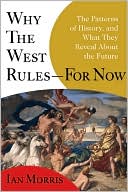Sudanese Migrants and Exiles in North America
In one of the first books devoted to the experience of Sudanese immigrants and exiles in the United States, Rogaia Mustafa Abusharaf places her community into context, showing its increasing historical and political significance. Abusharaf herself participates in many aspects of life in the migrant community and in the Sudan in ways that a non-Sudanese could not. Attending religious events, social gatherings, and meetings, Abusharaf discovers that a national sense of common Sudanese identity...
Search in google:
In one of the first books devoted to the experience of Sudanese immigrants and exiles in the United States, Rogaia Mustafa Abusharaf places her community into context, showing its increasing historical and political significance. Abusharaf herself participates in many aspects of life in the migrant community and in the Sudan in ways that a non-Sudanese could not. Attending religious events, social gatherings, and meetings, Abusharaf discovers that a national sense of common Sudanese identity emerges more strongly among immigrants in North America than it does at home. Sudanese immigrants use informal transatlantic networks to ease the immigration process, and act on the local level to help others find housing and employment. They gather for political activism, to share feasts, and to celebrate marriages, always negotiating between tradition and the challenges of their new surroundings. Abusharaf uses a combination of conversations with Sudanese friends, interviews, and life histories to portray several groups among the Sudanese immigrant population: Southern war refugees, including the "Lost Boys of Sudan," spent years in camps in Kenya or Uganda; professionals were expelled from the Gulf because their country's rulers backed Iraq in the Gulf War; Christian Copts suffered from religious persecution in Sudan; and women migrated alone. Foreign Affairs During the almost half a century since its independence, Sudan has been unsuccessful in creating a national identity that all its citizens can willingly share. Civil war and economic hardship have internally displaced millions of people and caused hundreds of thousands more to emigrate or flee into exile. This interesting study presents a nicely textured picture of the Sudanese diaspora in the United States and Canada, surveying the reasons people left home, their economic and social coping strategies, their reluctance to assimilate non-Sudanese life styles, and their attitudes regarding religion, traditional customs, women's status, and politics at home. The author finds that exile causes Sudanese to lose their deeply felt particularistic ethnic, racial, and religious identities and to develop instead a sense of themselves as simply "Sudanese." In her view, this adaptation bodes well for the future reconstruction of Sudan if moderate leaders ever replace the present extremists in Khartoum.
Author's NoteAcknowledgmentsAn Airport SceneIntroduction: Departing1Pt. IInaugural Migration to North America1The First to Arrive: Sati Majid, 1904-29172The Bahhara: An Immigrant Community33Pt. IIPost-1989 Migration: Four Experiences3Southern Sudanese: A Community in Exile494Beyond the Storm: Sudanese Post-Gulf War Migration725The Copts: A Perpetual Diaspora816Migration with a Feminine Face: Breaking the Cultural Mold93Pt. IIIThe Ghorba: Life in Exile7Economic Bearings1158Finding Refuge in the Shrine of Culture1289Political Life156Epilogue: Racialization and a Nation in Absentia164Glossary169References173Index185
\ Foreign AffairsDuring the almost half a century since its independence, Sudan has been unsuccessful in creating a national identity that all its citizens can willingly share. Civil war and economic hardship have internally displaced millions of people and caused hundreds of thousands more to emigrate or flee into exile. This interesting study presents a nicely textured picture of the Sudanese diaspora in the United States and Canada, surveying the reasons people left home, their economic and social coping strategies, their reluctance to assimilate non-Sudanese life styles, and their attitudes regarding religion, traditional customs, women's status, and politics at home. The author finds that exile causes Sudanese to lose their deeply felt particularistic ethnic, racial, and religious identities and to develop instead a sense of themselves as simply "Sudanese." In her view, this adaptation bodes well for the future reconstruction of Sudan if moderate leaders ever replace the present extremists in Khartoum.\ \ \ \ \ From the Publisher"Wanderings is highly readable and an appropriate mix of theory and personal narratives. Rogaia Mustafa Abusharaf makes good use of the data, and employs a methodology that reveals and clarifies rather than mystifies."-Sondra Hale, University of California Los Angeles\ "This rare anthropological investigation of Sudanese migration to the New World is a valuable contribution to the study of transnational migration. Informed by global political economic developments, Rogaia Mustafa Abusharaf's analysis of the complexities of social identity provides a challenging alternative to the classic conception of community as a territorially based entity. This meticulously researched and well-written book holds promise of broad appeal among both specialists and non-specialists concerned with contemporary developments in African/Arab societies, as well as issues of race and ethnicity in the U.S."-Soheir A. Morsy, Independent Scholar and International Consultant\ "This interesting study presents a nicely textured picture of the Sudanese diaspora in the United States and Canada, surveying the reasons people left home, their economic and social coping strategies, their reluctance to assimilate non-Sudanese lifestyles, and their attitudes regarding religion, traditional customs, women's status, and politics at home."-Foreign Affairs, November/December 2002.\ "Abusharaf discusses the variety of Sudanese migrants who came to North America in the 20th century. . . . Wanderings is valuable in demonstrating recent immigrant attitudes toward a new environment."-Choice, September 2003\ "Wanderings is a sensitive portrayal of the diverse Sudanese community in North America. It is also highly readable, partly because the author allows immigrants to speak for themselves by frequently including excerpts from conversations and interviews. The details of this book are Sudanese, but the core immigrant experience it examines-of struggling to make a new home while trying to preserve links to an old one-has universal resonance and appeal."-Heather J. Sharkey, International Journal of African Historical Studies 36:1, 2003\ \ \








